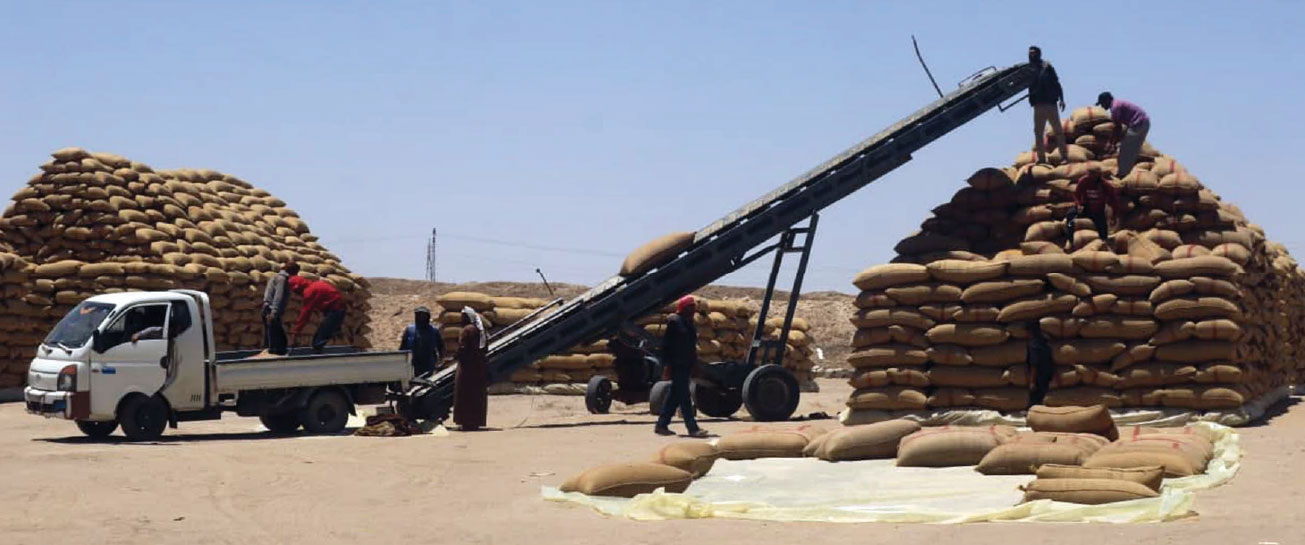In an exclusive statement to Al-Watan, the director general of the Grain Foundation Abdul Latif al-Amin confirmed that wheat intakes for 2022 are still being quantified. However, the small recorded intake until this point reflects the declining harvest, which has reached 511,000 tons. Amin explained that the season continues until September 30th and, compared to the harvest last year, it is apparent that a significant increase has occurred, whereby the amount was 366,000 tons last year, whereas this year’s harvest is currently expected to reach 525,000 tons of wheat from all governorates.
In his interview with Al-Watan, Amin added: “The government is interested in restoring and strengthening the suppky of wheat permanently. Most importantly, the government plan concerns the existing wheat stockpile, which covers our need for bread. There is no need to worry.” Amin stressed, mentioning that wheat has been imported from Russia. He indicated that Syria’s demand for wheat is between two million and 2.2 million tons per year.
Read Also: ‘Syria Food Basket’ Struck by Dire Wheat Shortages
On the amounts of imported wheat, Amin said: “The previous contract was worth 600,000 tons. We are in the process of securing additional quantities of wheat sufficient until beyond the end of this year, in addition to what we currently have and Syria’s demand for flour for bread, which ranges from 180,000 to 200,000 tons per month. This figure excludes flour used for pastries and cakes.”
When asked by the foundation’s director-general about the usefulness of subsidies to bakeries, he stressed that the entire subsidy had been distributed. This means that no shortage of supply currently exists for inputs. Amin added that, in some cases, bakery owners argue that subsidies for bakeries are not enough “to the detriment of Syrians.” On the contrary, Amin said, some bakeries demand increased flour allocations; in reality, he said that bakeries have all of the inputs they require. He explained that rumours of bakeries closing early due to a lack of flour are not true and that these bakeries must be held accountable. This is because the subsidies cannot be manipulated, as each bakery is focused on securing bread, and the supply ensues through the allocation of subsidy cards.
On the difficulties beleaguering the bread sector, Amin said: “As an institution, power outages are the predominant problem that we suffer from because this affects the work of flour mills, especially since the milling of all Syrian bakeries and quantities is large. And, unfortunately, the amount produced sometimes falls due to shortages resulting from power outages.”
This article was translated and edited by The Syrian Observer. The Syrian Observer has not verified the content of this story. Responsibility for the information and views set out in this article lies entirely with the author.


